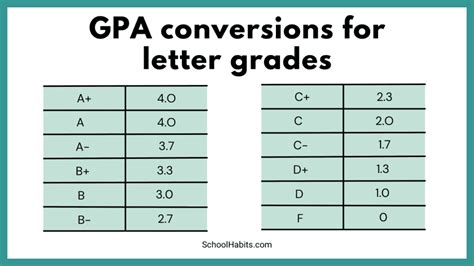Having a 3.1 GPA is a respectable achievement, and it's a common benchmark for college students. However, the significance of a 3.1 GPA can vary greatly depending on several factors, including the institution, major, and individual goals.
In general, a GPA of 3.1 is considered good, but not exceptional. It indicates that a student has achieved a solid understanding of the coursework and has demonstrated a strong work ethic. However, it may not be sufficient to distinguish oneself in a competitive academic environment.
To put this into perspective, a 3.1 GPA is typically considered to be:
- Above average: A 3.1 GPA is higher than the national average GPA of 3.0 for college students.
- Respectable: A 3.1 GPA demonstrates a good understanding of the coursework and a strong work ethic.
- Not exceptional: A 3.1 GPA may not be sufficient to distinguish oneself in a competitive academic environment, especially for highly selective programs or scholarships.
But what does this mean for college success?

How a 3.1 GPA Impacts College Success
A 3.1 GPA can have a significant impact on college success, depending on the individual's goals and aspirations. Here are a few ways a 3.1 GPA can affect college success:
- Graduate school: A 3.1 GPA may be sufficient for admission to some graduate programs, but it may not be competitive for highly selective programs.
- Scholarships: A 3.1 GPA may not be enough to qualify for highly competitive scholarships, but it may be sufficient for smaller awards.
- Internships and job opportunities: A 3.1 GPA can be beneficial for internships and job opportunities, especially in fields that value strong academic performance.
- Leadership opportunities: A 3.1 GPA can be a stepping stone for leadership opportunities, such as student government or club leadership roles.
What Can You Do with a 3.1 GPA?
While a 3.1 GPA may not be exceptional, it's still a respectable achievement. Here are a few things you can do with a 3.1 GPA:
- Pursue a career: A 3.1 GPA can be beneficial for entry-level positions in many fields, including business, healthcare, and education.
- Attend graduate school: A 3.1 GPA may be sufficient for admission to some graduate programs, especially if you have relevant work experience or other qualifications.
- Apply for scholarships: While a 3.1 GPA may not be enough for highly competitive scholarships, it may be sufficient for smaller awards.
- Take on leadership roles: A 3.1 GPA can be a stepping stone for leadership opportunities, such as student government or club leadership roles.
How to Improve a 3.1 GPA
If you're looking to improve your 3.1 GPA, here are a few strategies to consider:
- Take challenging courses: Taking challenging courses can help you demonstrate your academic abilities and improve your GPA.
- Seek out academic support: Seeking out academic support, such as tutoring or academic advising, can help you improve your grades and GPA.
- Develop a study routine: Developing a study routine can help you stay on top of your coursework and improve your grades.
- Get involved in extracurricular activities: Getting involved in extracurricular activities can help you develop new skills and demonstrate your commitment to your field.

Conclusion
A 3.1 GPA is a respectable achievement, but it's not exceptional. However, it's still a good starting point for college success. By understanding the implications of a 3.1 GPA and taking steps to improve it, you can set yourself up for success in college and beyond.
Gallery of College Success






FAQ
Is a 3.1 GPA good enough for college success?
+A 3.1 GPA is a respectable achievement, but it's not exceptional. However, it's still a good starting point for college success.
What can I do with a 3.1 GPA?
+You can pursue a career, attend graduate school, apply for scholarships, and take on leadership roles with a 3.1 GPA.
How can I improve my 3.1 GPA?
+You can improve your 3.1 GPA by taking challenging courses, seeking out academic support, developing a study routine, and getting involved in extracurricular activities.
